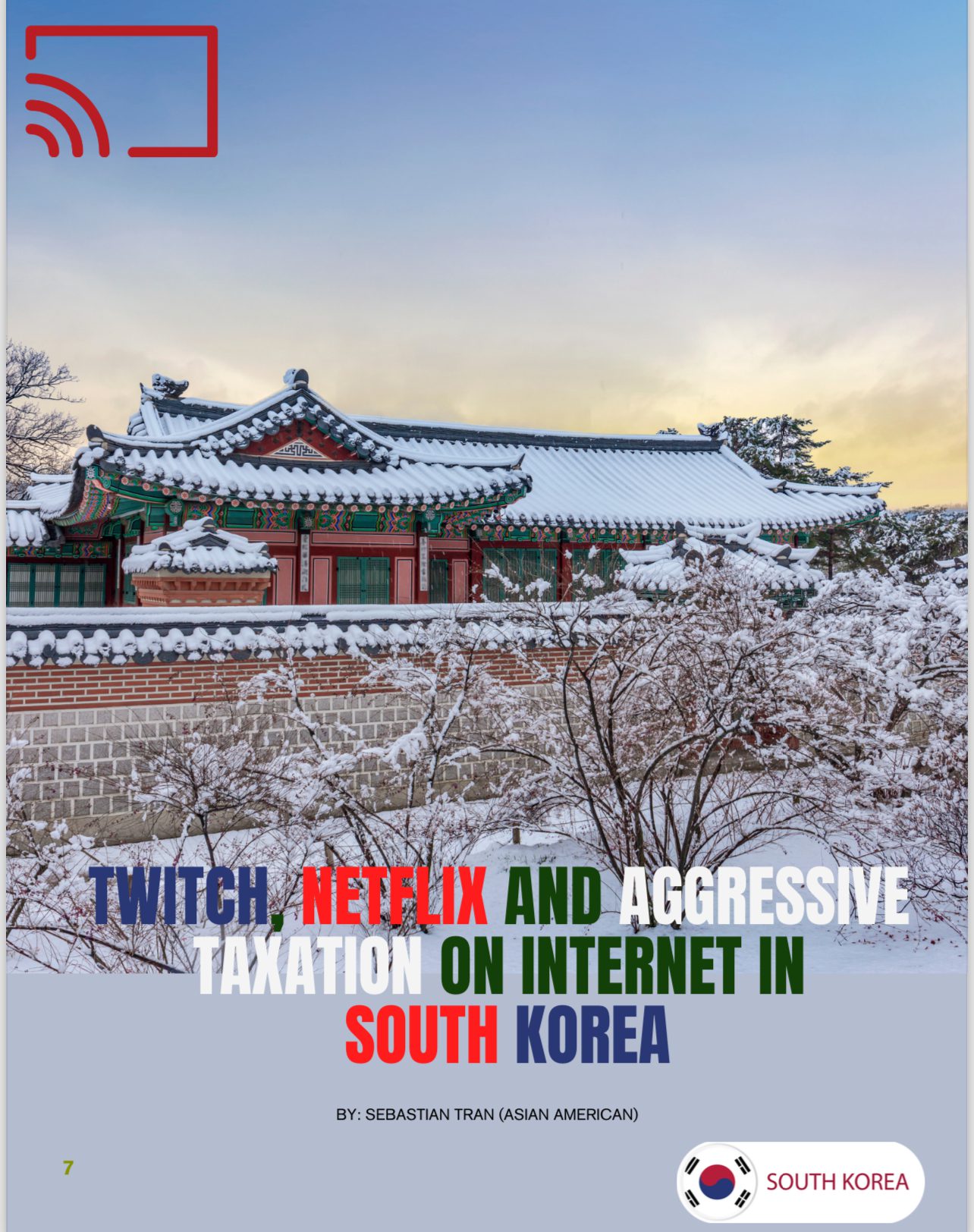By Sebastian Tran (Asian-American)
On December 5th, 2023, streaming platform Twitch.tv announced that it would be ending its service in South Korea in February 2024, citing that Twitch in Korea was operating at a loss and was no longer worth supporting. Twitch went on to state that though this is a major upheaval for streamers that have made a living off of their platform, they will take measures to help streamers move to regional alternatives leading up to the end of service.
Online, many people are conflicted about this decision. At a surface level, it’s very easy to get angry at Twitch and Amazon – a major corporation shutting down a regional division for cost cutting is rarely a welcome thing. Plenty of streamers, from profitable influencers to charitable events, will no longer be able to earn donations, and likewise, their viewers will no longer be able to support creators they may have spent several years getting acquainted with. However, this isn’t the full story.
In 2016, the South Korean government enacted a Sending-Party-Network-Pays (SPNP) system for telecommunications – they were the first nation to ever do this. An SPNP system forces online services to pay internet providers for the amount of bandwidth that their service brings in, or else the internet won’t be accessible to them. In other words, it’s an additional income tax on top of the actual income tax charged in most capitalist nations.
This system since its first proposal has been very controversial. The system, intended to make it easier for new networks to develop and encourage competition, has only made larger service providers harder to compete with. Company size essentially determines your service quality, accomplishing the exact opposite of the mission statement.
The policy is even more hostile on the consumer end. Not only do companies pay higher fees based on used bandwidth, consumers also have to pay premiums in order to afford higher tiers of service. To put this in a global context, the highest average cost for 1GB of mobile data in Europe is that of Finland, coming in at €5.90, or $6.43. South Korea’s average is over double that price, at €12 ($13.08), and according to Statista, it’s the home of the second most expensive average data rates in the world.
While Twitch’s decision is almost absolutely for maximizing profits, it does shed light on the issues that SPNP brings. Not only does it make things more difficult for businesses within the country to start up, it’s discouraging overseas companies from expanding into South Korea – emphasized by the fact that Twitch isn’t the only streaming service to have gone against this policy.
While there aren’t many precise statistics for just how much content providers are being charged, we can look at a past incident to see just how extortionate the policy gets. In 2020, Netflix got into a scuffle with SK Telecom/Broadband, one of South Korea’s largest ISPs, due to the viral popularity of Squid Game and how much traffic it was generating. SKB attempted to sue Netflix over the vast cost of bandwidth to support the show, asking for nearly $23 million in compensation.
In the early stages of the legal battle, Netflix was quite critical of SKT and SPNP, describing the situation in a blog post on their official website. Netflix defied the allegations of terabytes of unpaid internet traffic by citing their specialized network, Open Connect, designed to decrease bandwidth use and saving costs on servers. In an implicit acknowledgement of the massive fees being asked of them, they directly criticized the SPNP policy, writing,
“By making both consumers and content providers pay, they can get paid twice.”
Courts ruled in favor of SKT during this case, and Netflix was quick to appeal the decision. However, early in 2023, the legal battle ended not in a ruling on either side, but a mutual agreement between parties. SKT and Netflix chose a partnership, the latter informing the public about easier payment options, bundling Netflix subscriptions and programming with SKT products.
Unfortunately, it’s a sensible move on Netflix’s part – with just how much viewership Squid Game rakes in, giving up screening rights would be a massive loss. This pattern of creator criticism and compromise with networks is starting to form, and how long the pattern will last, only time will tell. However, there is a silver lining in Twitch’s withdrawal.
While Netflix compromised with major providers, Twitch is cutting itself off entirely from them, and however inadvertently, the company has demonstrated what can happen if these fees remain as high as they are, or worse, continue to rise. If people and organizations are properly informed about this display of greed, then just maybe, proper change can be made.
Sebastian Tran is a graduate of Emerson College in Boston, Massachusetts, with a love for writing of all kinds. He believes that writing as an art form is used to communicate complex thoughts and teach important lessons, and advocate journalism is no different. As a storyteller and someone looking to learn and teach about world cultures, he aims to shed light on issues that need more exposure.





